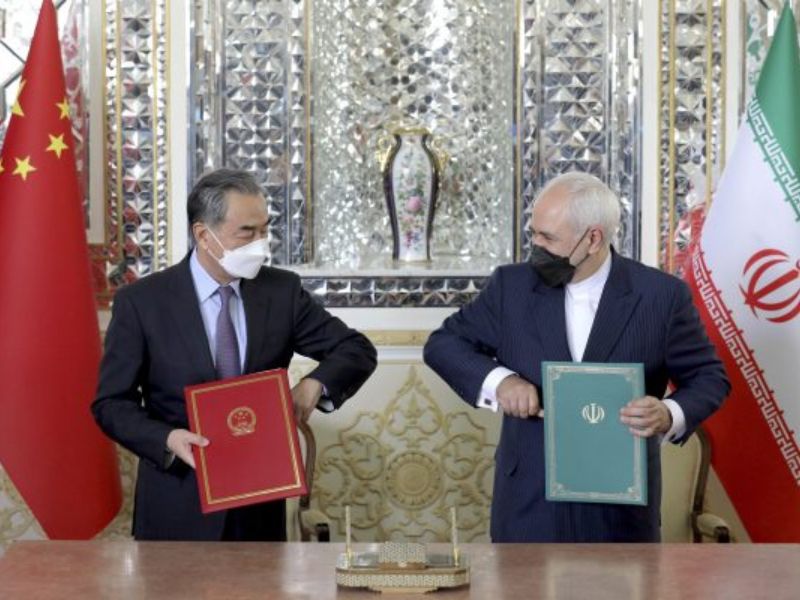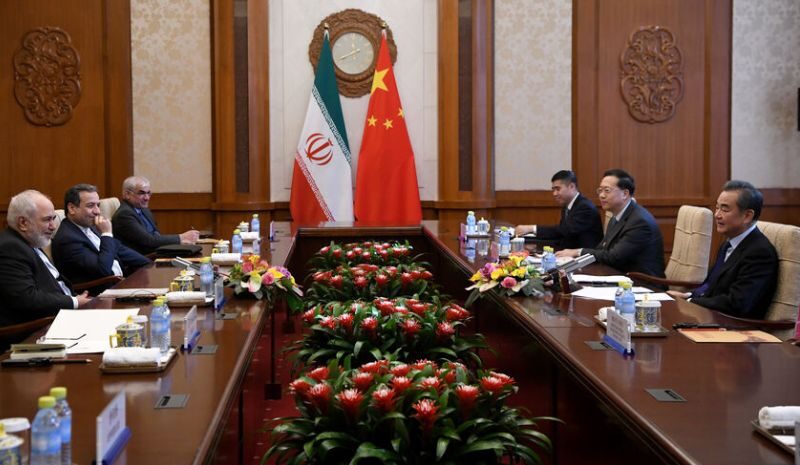China Underpins Iran in Guarding Security, Says Remote Serve
In a noteworthy political improvement, China has communicated solid back for Iran’s sway and national security amid rising pressures within the Center East. Chinese Remote Serve Wang Yi reaffirmed Beijing’s backing for Iran amid a phone call with Iran’s Acting Remote Serve Ali Bagheri Kani on Sunday, emphasizing China’s position on territorial solidness and sway.
The discussion between Wang Yi and Bagheri Kani came in the wake of a sensational acceleration within the Center East, taking after the death of Ismail Haniyeh, a conspicuous Hamas pioneer, in Tehran on July 31. The slaughtering has been credited by Iran and Hamas to Israel, even though Israel has not one or the other affirmed nor denied inclusion. This occurrence has escalated fears that the progressing struggle between Israel and Hamas may wind into a broader territorial struggle.

Wang Yi’s statements reflect China’s key intrigue in keeping up a steady and secure environment within the Center East, which is significant for worldwide financial and political solidness. Concurring to China’s outside service, Wang Yi unequivocally condemned the death of Haniyeh, portraying it as an infringement of Iranian sway and a risk to territorial soundness. This condemnation adjusts with China’s broader discretionary approach of pushing for non-interference and regarding national sway in worldwide undertakings.
In his comments, Wang Yi highlighted that the murder of Haniyeh had “directly undermined the Gaza ceasefire transaction prepare and undermined territorial peace and stability.” This declaration underscores China’s concern approximately the potential crash of peace endeavors and the decline of the struggle within the Gaza Strip. Wang Yi emphasized China’s back for Iran in protecting its sway, security, and national nobility in understanding worldwide law. He also emphasized China’s availability to preserve near communication with Iran to address the advancing circumstance and to back endeavors to reestablish territorial peace.
This appearance of back by China is a portion of its broader conciliatory procedure within the Center East, where it has looked to position itself as a key player in interceding clashes and fostering stability. Beijing’s engagement with Iran reflects its intrigue in keeping up great relations with key territorial on-screen characters and its commitment to an adjusted remote approach that advances peace and security within the locale.
Iran’s reaction to the death has been firm, with President Masoud Pezeshkian vowing to “harshly punish” those mindful. The Iranian government has demonstrated that it sees the occurrence as an extreme attactonicsts sway and a destabilizing act in an as-as-of-now unstable scale. This commitment to countering underscores the tall stakes included within the current emergency and the potential for advance acceleration.

In a related improvement, Iranian President Pezeshkian has designated Abbas Araqchi as the country’s modern remote serve. Araqchi, who already served as Iran’s chief mediator in atomic talks from 2013 to 2021, brings broad involvement in conciliatory arrangements and universal relations. His arrangement is anticipated to have noteworthy suggestions for Iran’s remote approach and its approach to the continuous pressures with Israel and other territorial issues.
The designation of Araqchi and the proceed back from China highlight the complex and energetic nature of Center Eastern geopolitics. As the circumstance unfurls, the worldwide community will be closely observing how these improvements impact territorial solidness and the broader worldwide adjustment of control.
China’s back for Iran and its condemnation of the death reflect its key interface within the Center East and its broader outside approach destinations. By standing with Iran, Beijing points to strengthening its part as a key worldwide player and advocate for a steady and secure worldwide environment. As the circumstances within the Center East proceed to advance, the activities and reactions of major worldwide on-screen characters like China will play a critical role in forming the end of the locale.
Must Read:
- Luana Alonso’s Paris Olympics Controversy: From Expulsion to Desire to Represent the U.S.
- Ukraine’s Bold Kursk Incursion: Zelensky’s Call for Russia to ‘Feel’ the War’s Impact
FAQs
1. What did Chinese Foreign Minister Wang Yi convey the main message in his call with Iran’s Acting Foreign Minister Ali Bagheri Kani?
Chinese Outside Serve Wang Yi communicated a solid bolster for Iran’s sway, security, and national nobility. He condemned the death of Hamas pioneer Ismail Haniyeh, depicting it as an infringement of Iran’s sway and a risk to territorial steadiness. Wang Yi emphasized China’s commitment to supporting Iran’s endeavors to preserve territorial peace and soundness and stresses the significance of keeping up near communication between China and Iran.
2. What are the implications of the assassination of Ismail Haniyeh for the conflict between Israel and Hamas?
The death of Ismail Haniyeh has increased pressure between Israel and Hamas, with allegations coordinated towards Israel for the murder. This occurrence has raised concerns about the potential for the strife to grow into a broader Center Eastern war. The slaughtering has been seen as a noteworthy blow to the Gaza ceasefire arrangement, potentially undermining endeavors to attain an enduring peace within the locale and expanding the probability of advance acceleration.
3. What recent developments have occurred in Iranian foreign policy following the assassination of Haniyeh?
In response to the death of Ismail Haniyeh, Iran has pledged to “brutally rebuff” those mindful, demonstrating a solid position against the culprits. Furthermore, Iranian President Masoud Pezeshkian has designated Abbas Araqchi as the modern outside server. Araqchi, who has broad involvement in worldwide transactions, is anticipated to play a key part in forming Iran’s remote arrangement and tending to the continuous territorial pressures.

